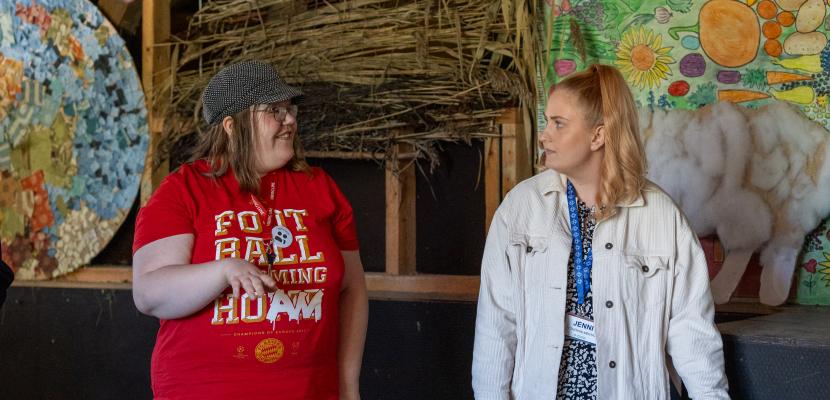
Peer coaches and peer instructors in disability services

About this good practice
Peer coaches and peer instructors are trained partners for social services professionals in supported employment or activity centres in the disability services in the Wellbeing services county of Päijät-Häme. The wellbeing services county pays fees for peer coaches and thus shows example for others.
In 2018, there was an aim to develop the participation and job opportunities for disabled persons in the government programme. In Päijät-Häme, with the support of state funding, the training for peer coaches for supported employment was planned and established. Since then, there has been a training once a year, where 8-12 peer coaches have been trained each year. The training has also expanded to train peer instructors to activity centres.
The aim of this practice was to improve the inclusion, participation, job opportunities and equality of disabled persons. It is client-centred in two ways: it increases the opportunities of a peer coach and makes it easier for a client to take guidance from a peer with similar experiences and challenges. They are supporters, encouragers, and advisors for clients. They are a big support especially when clients are starting a new job or are new in activity centres. The practice was also established to allocate scarce resources of social services professional more effectively.
The peer coaches and instructors are offered further training yearly. This training gives the peers also the opportunity to contact and share experiences with other peers.
Expert opinion
Resources needed
The practice demands staff resources and funding of the fees. The coordinator and two trainers are needed. The training has consisted of 8-9 times, once a week, 3 hours per time and further training yearly when needed.The peers are paid fees based on their working hours, which are agreed beforehand.
Evidence of success
All together 63 peer coaches and peer instructors have been trained. 37 of them had worked as a peer coach of instructor. 7 persons have been employed in a paid job after working as a peer coach.
Feed-back from social services professionals have been positive.
Peer coaches and instructors have developed new procedures in coaching of activity centres, for example how to support a person with an immigrant background and lack of language skills in activity centres.
Potential for learning or transfer
The practice is relatively easy to adapt when you want to improve inclusion, equality and job opportunities of the disabled persons and the diversity in working life.
It is a slightly lighter practice to adapt than the process of training experts by experience, which is more commonly used.
The practice gives added value for peers, clients and social services workers, and release the sparse resources of social services staff for tasks that demand their expertise. Sometimes it is also easier for clients to ask and take guidance from a peer than a social services professional. The peers get work experience and are more involved in the society.
The organization can show example for others by offering training and jobs for disabled persons.
